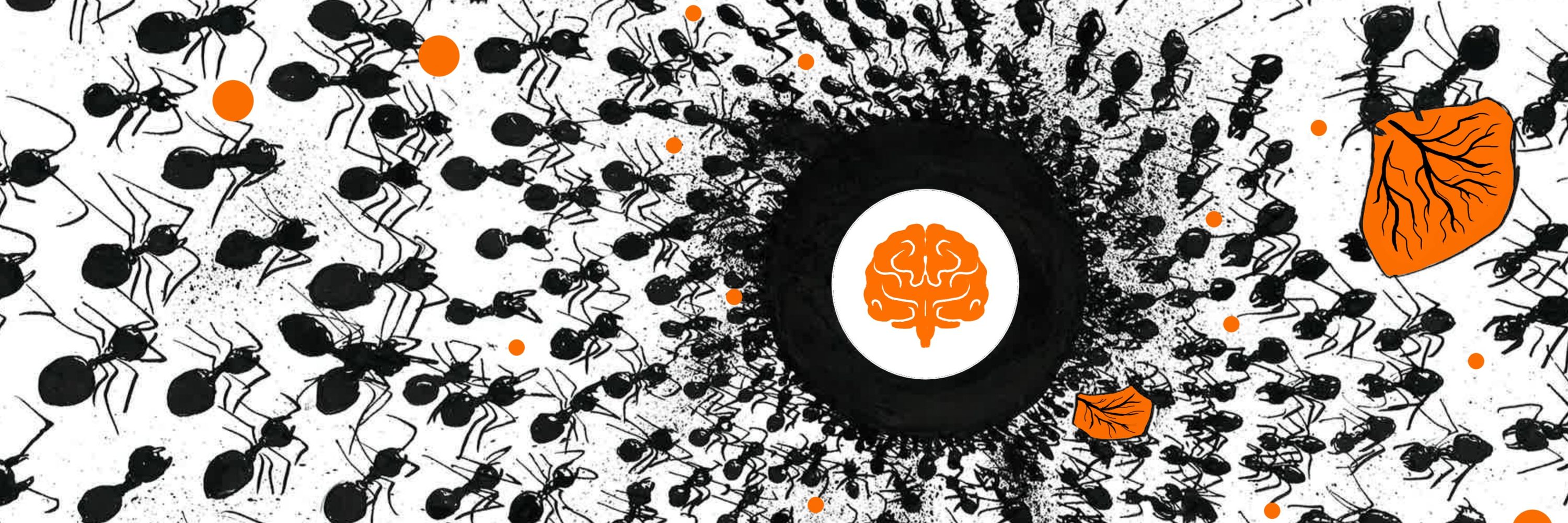
Karoline Wiesner: https://www.karowiesner.org
University Website: https://www.uni-potsdam.de/de/complexity-science/


#Complexity can be found anywhere from neural networks and ant colonies, to climatic systems and governments. Here, at the University of Potsdam, the research group led by physicist @karowiesner.bsky.social explores ways to quantify and better understand complexity.





1/6 🧵Here's a thread on @karowiesner.bsky.social's research and the many papers she has published on this topic!
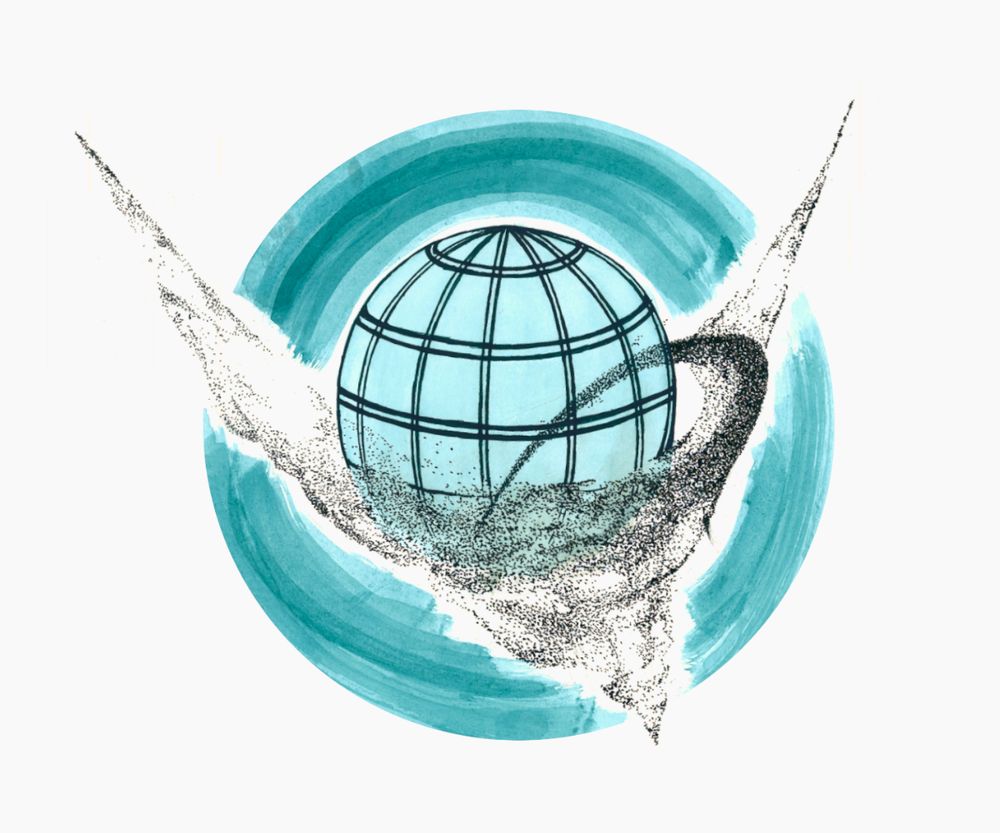
1/6 🧵Here's a thread on @karowiesner.bsky.social's research and the many papers she has published on this topic!
While the master's students delve deeper into the methods and philosophy of complex systems, the bachelor's students get an introduction to the field with some useful applications.
While the master's students delve deeper into the methods and philosophy of complex systems, the bachelor's students get an introduction to the field with some useful applications.
In this group, Chris Jones examined a model capable of providing such predictions efficiently by analyzing the dependences between species. arxiv.org/abs/2306.15428

In this group, Chris Jones examined a model capable of providing such predictions efficiently by analyzing the dependences between species. arxiv.org/abs/2306.15428
A workshop at CSH, organized by @spintheory.bsky.social and @karowiesner.bsky.social, brought together leading experts to explore how statistical physics can help us better understand the link between democratization and civil war.
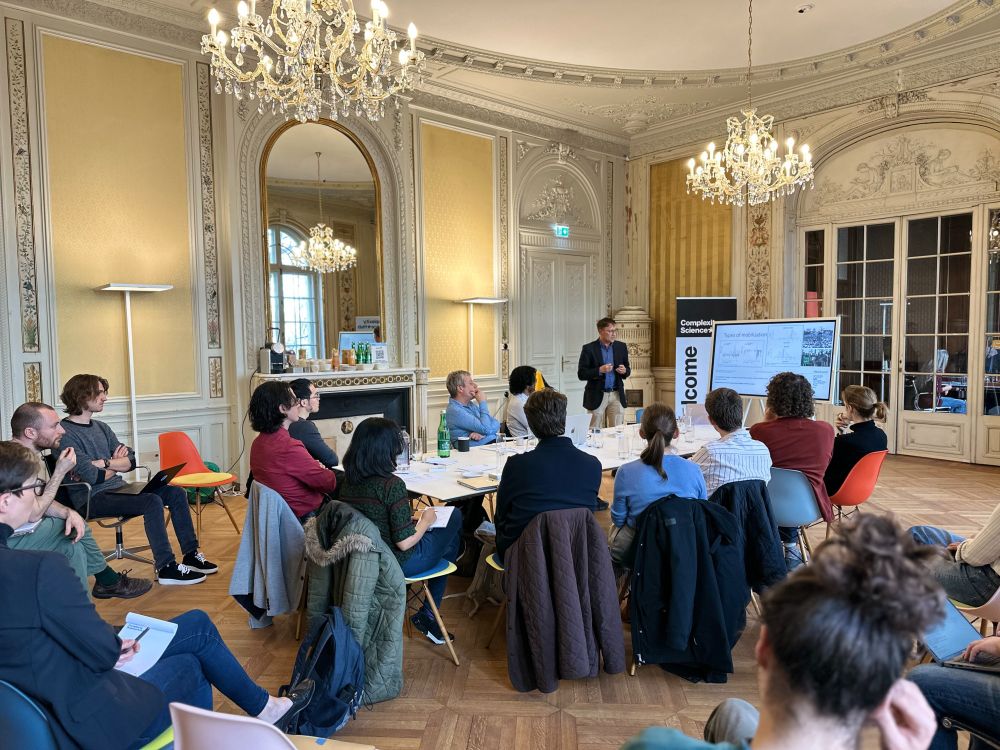
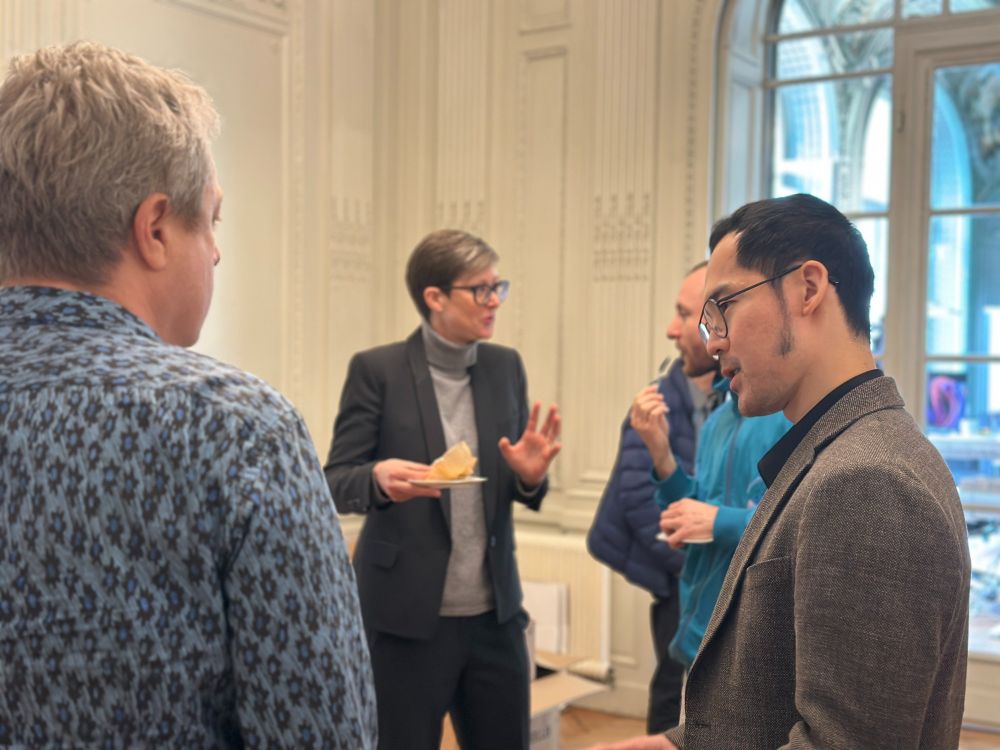
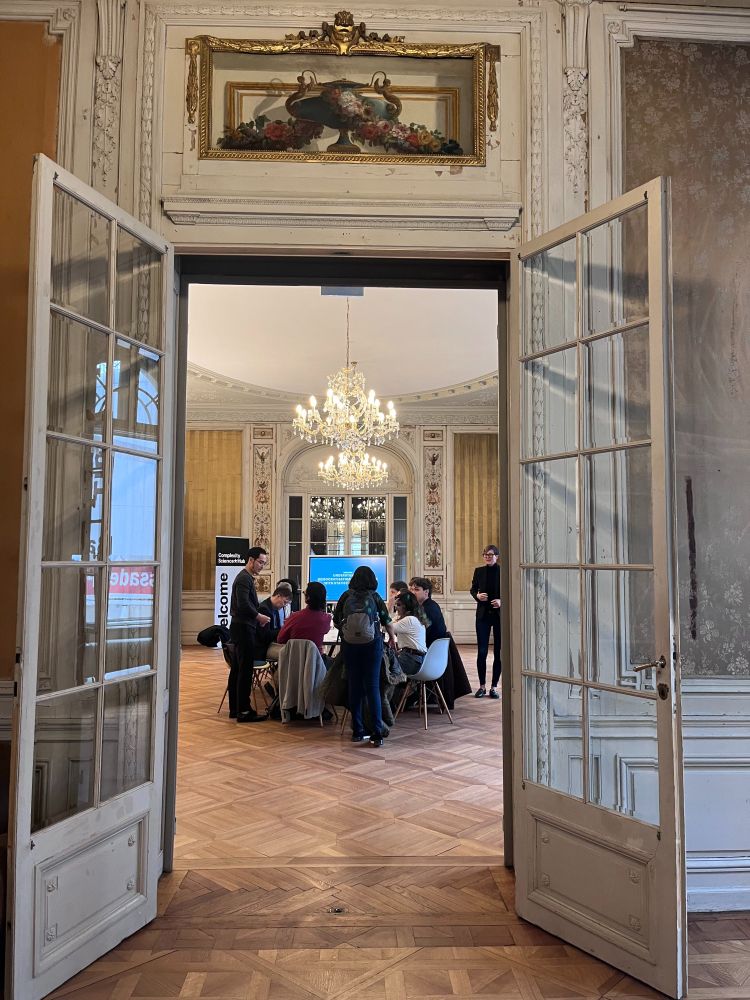
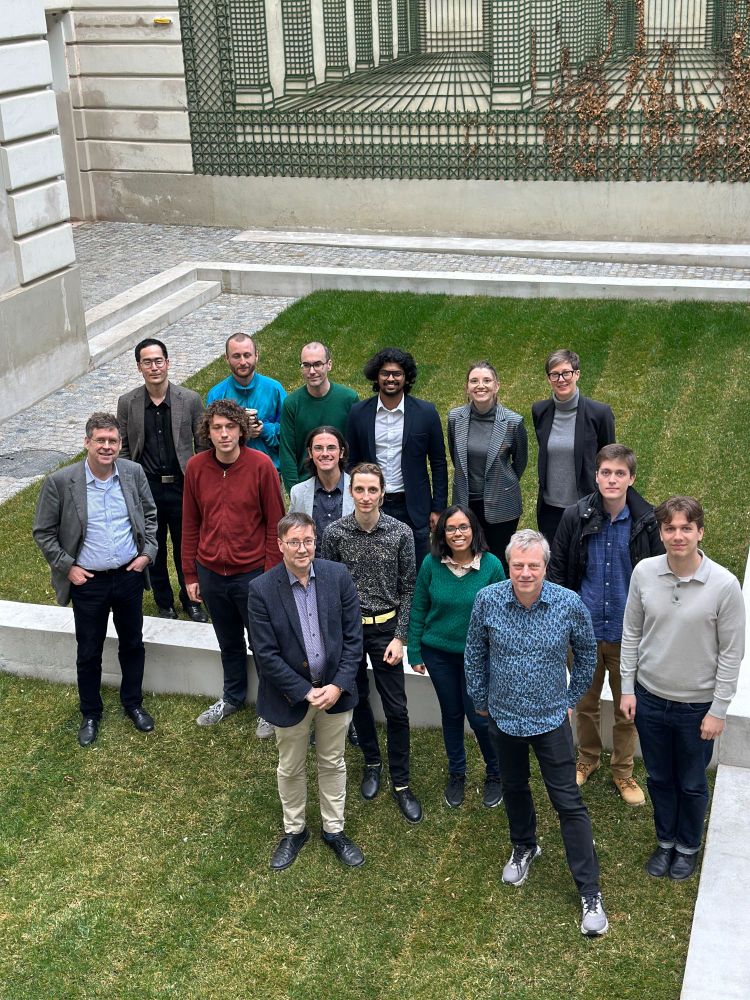
Both worked on completely different types of systems. However, what connects both of them is clear: #complexity.
Both worked on completely different types of systems. However, what connects both of them is clear: #complexity.
A workshop at CSH, organized by @spintheory.bsky.social and @karowiesner.bsky.social, brought together leading experts to explore how statistical physics can help us better understand the link between democratization and civil war.




A workshop at CSH, organized by @spintheory.bsky.social and @karowiesner.bsky.social, brought together leading experts to explore how statistical physics can help us better understand the link between democratization and civil war.
ℹ ifisc.uib-csic.es/master/fello...
Learn about the master's degree:
▶ youtu.be/usn8Ea2kBWk?...
ℹ ifisc.uib-csic.es/master/fello...
Learn about the master's degree:
▶ youtu.be/usn8Ea2kBWk?...
@yrcss.bsky.social is bringing together young scientists with a common scientific interest in complex systems and creates opportunities for them to get together.
Bridge: 🌉 To build new collaborations!
SECS: 🎓 To attend complexity science events!
New for 2025: ⚡ Special grants for scientists from low-income countries.
yrcss.cssociety.org/grants/
Apply by April 4th!

@yrcss.bsky.social is bringing together young scientists with a common scientific interest in complex systems and creates opportunities for them to get together.
Before joining us, she did her Bachelor's in Physics and Master's degree in Physics of Complex Systems and Biophysics at the University of Barcelona.
Now, let's talk about her current #research!
1/10🧵
#WomenInSTEM #SciCom #Complexity
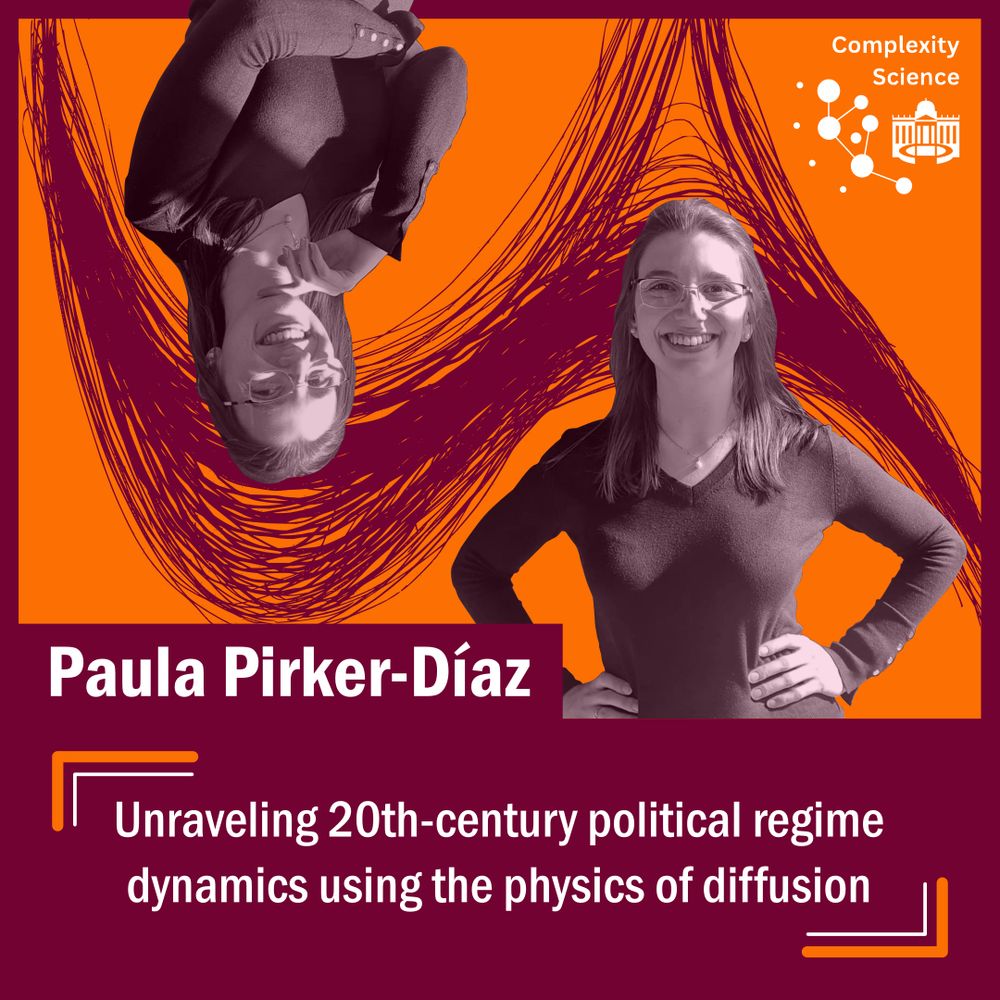
Before joining us, she did her Bachelor's in Physics and Master's degree in Physics of Complex Systems and Biophysics at the University of Barcelona.
Now, let's talk about her current #research!
1/10🧵
#WomenInSTEM #SciCom #Complexity
#Complex systems without emergence are like a long office day without coffe.
While emergence is a fascinating phenomenon with a central role in nature and society, it's a challenge to intuitively point out what it actually is. Beyond a minimalist and vague definition, that is... 🧪
#Complex systems without emergence are like a long office day without coffe.
While emergence is a fascinating phenomenon with a central role in nature and society, it's a challenge to intuitively point out what it actually is. Beyond a minimalist and vague definition, that is... 🧪
While we're talking about quite specific topics ranging from neural networks to governments and earth climate, our meetings are open for everyone.
While we're talking about quite specific topics ranging from neural networks to governments and earth climate, our meetings are open for everyone.
In January, we got together twice with Prof. Jan Härter's Climate Physics group of the Physics Institute in Potsdam. Each member of both groups got to present their current projects to each other.
In January, we got together twice with Prof. Jan Härter's Climate Physics group of the Physics Institute in Potsdam. Each member of both groups got to present their current projects to each other.
We highly recommend giving the rest a listen too - there are plenty of systems and phenomena to explore. 🧪
Apple: buff.ly/3VTjG9I
Spotify: buff.ly/3WaR9MA
🧪⚛️ #complex #complexity

We highly recommend giving the rest a listen too - there are plenty of systems and phenomena to explore. 🧪
We're the Complexity Science group at the University of Potsdam, consisting of professor @karowiesner.bsky.social , post-docs, PhDs, as well as master's and bachelor's students and student assistants.

We're the Complexity Science group at the University of Potsdam, consisting of professor @karowiesner.bsky.social , post-docs, PhDs, as well as master's and bachelor's students and student assistants.
#Complexity can be found anywhere from neural networks and ant colonies, to climatic systems and governments. Here, at the University of Potsdam, the research group led by physicist @karowiesner.bsky.social explores ways to quantify and better understand complexity.


#Complexity can be found anywhere from neural networks and ant colonies, to climatic systems and governments. Here, at the University of Potsdam, the research group led by physicist @karowiesner.bsky.social explores ways to quantify and better understand complexity.

